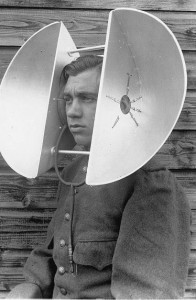 Pretty historic election yesterday.
Pretty historic election yesterday.
The Republican party won nearly 65 seats, taking control of the House and gaining spots in the Senate. There was also a large Republican majority in the Governor’s races as well.
I’m not going to use this post to argue the benefits or downsides of either party, nor am I going to anticipate what will happen with the shift in the power base of the political system.
What I am going to talk about is our ability to listen with the ability to hear what people are trying to communicate. That’s what today is all about in the news cycle and in the pundit debates. Today is the day where everyone with an interest in what transpired yesterday will try and decipher what kind of message was being sent by the voters. I guess I should say that there will be some deciphering as well as some spinning.
When someone puts “spin” on a message, they are attempting to make the message say something they want it to say. Today you’ll hear words being tossed around like mandate, historic (I even used that word), rebuke, and change. All of these words will be used to help promote the message that some are hoping for. Today, we will hear the responses of many politicians and pundits about what type of message they heard from the election yesterday.
I’ve always said a leader’s greatest communication skill isn’t the ability to speak, it’s the ability to listen. In the same way that newly elected and incumbent candidates will declare the message they heard “loud and clear” from the electorate, we engage in deciphering messages everyday from those around us.
The question is: Are we hearing what they’re saying or are we hearing what we want to hear?
I think objective listening (seeking to understand without preconceived notions) is one of the hardest things to do. In all of the conversations we have, we are listening to others through the filter of ourselves – through our experiences, through our thoughts, and through our own agendas. We hear through our own definitions of words. We hear through our perceptions and our intellect.
It is very difficult as a leader to do as Stephen Covey has recommended – to seek first to understand, then to be understood.
Today, there will be a lot of different takes on deciphering what type of message was being sent by voters yesterday. Some will listen with a bias toward one party over the other. I’m not here to try and decipher that message.
But I will be called upon to decipher the messages that I hear from those whom I lead. To seek to understand them with the best of my ability and with an open heart and mind. As I do that, I need to keep the following in mind:
- Listening, really listening, takes time.
- Ask better questions – for clarity and for understanding.
- Withhold assumptions in the discussion.
- Look people in the eye.
- Trust people to be trustworthy until they give reason to believe otherwise.
How about you? Are you listening for what you want to hear or are you listening for what’s being said?
Share this Post
